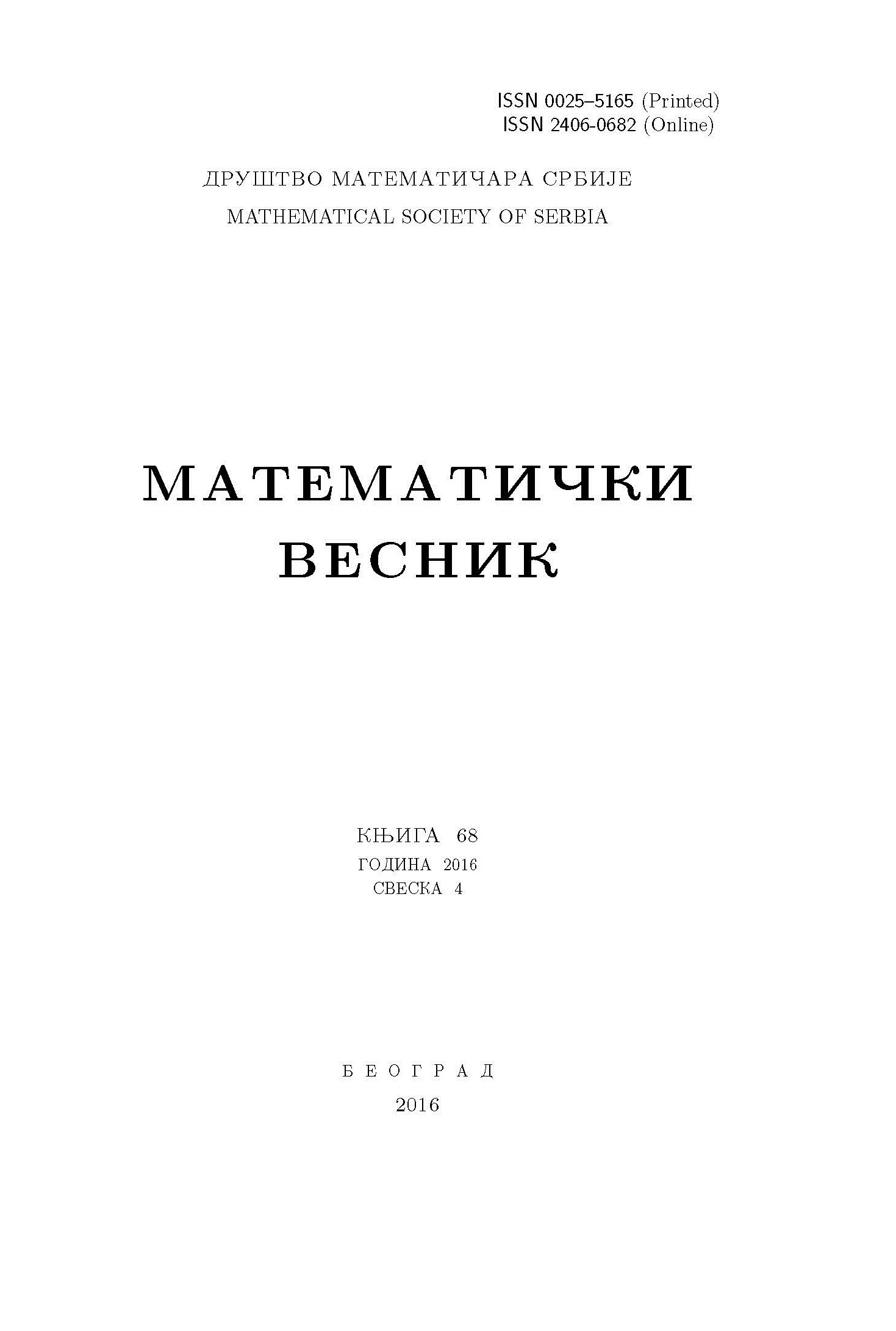
| EXISTENCE OF INFINITELY MANY EIGENGRAPH SEQUENCES OF THE $p(\cdot)$-BIHARMONIC EQUATION |
| M. Laghzal, A. Touzani |
Abstract The aim of this paper is to study the nonlinear eigenvalue problem \begin{align*} (P)\quad \begin{cases} \Delta (|\Delta u|^{p(x)-2}\Delta u)-\lambda \zeta(x)|u|^{\alpha(x)-2} u= \mu \xi(x) |u|^{\beta(x)-2}u, \quad x\in\Omega, \\ u\in W^{2,p(\cdot)}(\Omega)\cap W_0^{1,p(\cdot)}(\Omega), \end{cases} \end{align*} where $\Omega$ is a bounded domain in $\mathbb{R}^{N}$, with smooth boundary $\partial\Omega$, $N\geq 1$, $\lambda, \mu$ are real parameters, $\zeta$ and $\xi$ are nonnegative functions, $p, \alpha$, and $\beta$ are continuous functions on $ \overline{\Omega}$ such that $1< \alpha(x)< \beta(x)< p(x)<\frac{N}{2}.$ We show that the $p(\cdot)$-biharmonic operator possesses infinitely many eigengraph sequences and also prove that the principal eigengraph exists. Our analysis mainly relies on variational method and we prove Ljusternik-Schnirelemann theory on $C^1$-manifold. |
Keywords: $p(\cdot)$-biharmonic operator; nonlinear eigenvalue problems; variational methods; Ljusternik-Schnirelmann theory. |
MSC: 35A15, 35J35, 46E35 |
Pages: 88--100 |
Volume 73 , Issue 2 , 2021 |
